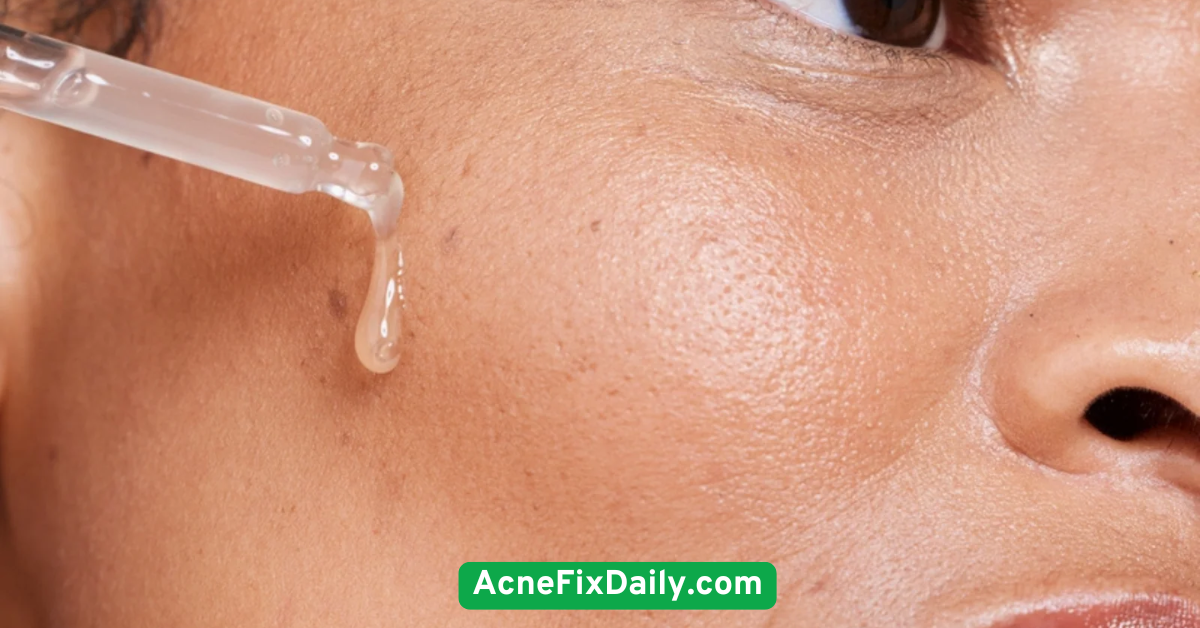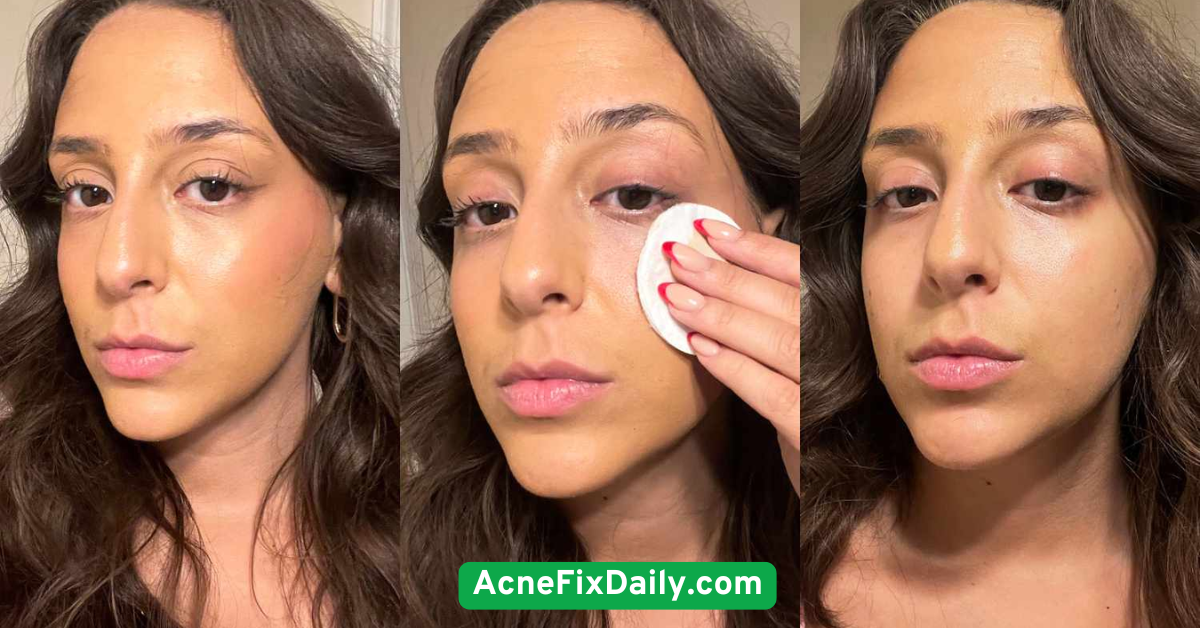20 Purifying Skincare Tips for Acne Control
Acne can be a stubborn and frustrating skin concern. But with the right care and approach, it’s absolutely possible to control breakouts and achieve clearer, healthier skin. If you’re tired of feeling overwhelmed by complicated routines or harsh treatments, this guide offers 20 purifying skincare tips that are effective, budget-friendly, and suitable for all skin types. From cleansing techniques to natural remedies and lifestyle habits, these tips will help you manage acne gently yet powerfully—so your skin can glow with confidence!
1. Cleanse Your Face Twice Daily
Cleansing is the foundation of any skincare routine, especially when battling acne. Washing your face twice a day — once in the morning and once before bed — helps remove dirt, excess oil, and impurities that can clog pores and trigger breakouts. However, the key is to use a gentle cleanser that won’t strip your skin of its natural moisture.Harsh soaps and over-cleansing can actually worsen acne by causing your skin to produce even more oil. Opt for a mild, sulfate-free cleanser formulated for acne-prone skin to maintain balance and keep your skin clean without irritation.

2. Use a Salicylic Acid Cleanser
Salicylic acid is a game-changer in acne care. It’s a beta-hydroxy acid (BHA) that penetrates deep into the pores to dissolve excess oil and dead skin cells, preventing clogging and breakouts. Incorporating a salicylic acid cleanser into your routine can reduce blackheads, whiteheads, and inflammation.Start slowly if you’re new to salicylic acid — using it every other day at first — to avoid dryness. When used correctly, it’s a powerful, budget-friendly way to keep your skin purified and clear.

3. Exfoliate Regularly but Gently
Exfoliation helps remove dead skin cells that can accumulate and block pores, leading to acne. For acne-prone skin, it’s crucial to exfoliate gently with chemical exfoliants like AHAs (alpha-hydroxy acids) or BHAs rather than rough physical scrubs that can cause irritation and worsen breakouts.Aim to exfoliate 1-2 times a week depending on your skin’s sensitivity. This promotes cell turnover, smoothens skin texture, and supports a clearer complexion without damage.

4. Apply a Clay Mask Weekly
Clay masks are excellent for purifying oily and acne-prone skin. Ingredients like kaolin and bentonite clay absorb excess sebum and draw out impurities from deep within your pores. Using a clay mask once a week can help reduce shine and prevent new blemishes.Apply the mask evenly and leave it on until dry but avoid over-drying your skin. After rinsing, follow up with a light moisturizer to keep your skin hydrated and balanced.

5. Keep Your Skin Hydrated
It might seem counterintuitive to hydrate oily or acne-prone skin, but moisture is essential for healthy skin function. Using a lightweight, non-comedogenic moisturizer prevents your skin from overproducing oil due to dryness.Hydration keeps your skin barrier strong, reduces redness and irritation, and helps acne treatments work more effectively. Look for gel-based or water-based moisturizers that feel refreshing without clogging pores.

6. Avoid Touching Your Face Frequently
Our hands carry dirt and bacteria that can easily transfer to the face, worsening acne. Avoid touching your face throughout the day, especially picking or popping pimples, as this can cause inflammation, infection, and even scarring.Try simple tricks to reduce unconscious face touching — like keeping your hands busy or regularly cleaning your phone screen, which often comes in contact with your skin.

7. Use Oil-Free and Non-Comedogenic Products
When choosing skincare and makeup, prioritize oil-free and non-comedogenic formulations. These products are specifically designed not to block pores, making them safer choices for acne-prone skin.Always check labels for these terms and avoid heavy creams or products containing ingredients like mineral oil, which can aggravate acne.

8. Apply Spot Treatments Wisely
Spot treatments with active ingredients such as benzoyl peroxide or tea tree oil are effective for targeting individual pimples. Benzoyl peroxide kills acne-causing bacteria and reduces inflammation, while tea tree oil offers natural antibacterial properties.Apply treatments sparingly only on blemishes to avoid drying out surrounding skin. Consistent use can accelerate healing and minimize redness.

9. Maintain a Healthy Diet
What you eat can influence your skin’s condition. A balanced diet rich in antioxidants, vitamins, and omega-3 fatty acids supports skin healing and reduces inflammation. Include plenty of fruits, vegetables, whole grains, and lean proteins.Limit foods high in sugar, dairy, and processed fats, which some studies link to increased acne severity. Remember, healthy skin starts from within!

10. Stay Hydrated by Drinking Plenty of Water
Water is essential for flushing out toxins and keeping your skin hydrated from the inside out. Drinking at least 8 glasses of water a day can improve skin elasticity, reduce dryness, and promote a clearer complexion.Hydration supports all your skincare efforts, making it a simple but powerful step toward acne control.

11. Don’t Overuse Makeup
Makeup can be fun and boost confidence, but overusing heavy or pore-clogging products can worsen acne. Opt for minimal, lightweight makeup and always remove it thoroughly at the end of the day.Consider mineral makeup or formulas specifically made for sensitive or acne-prone skin, which are less likely to cause breakouts.

12. Manage Stress Effectively
Stress triggers hormonal changes that can exacerbate acne flare-ups. Managing stress through meditation, exercise, or hobbies can improve your skin health significantly.Prioritize restful sleep and self-care to maintain hormonal balance and reduce acne-causing inflammation.

13. Change Pillowcases and Towels Frequently
Pillowcases and towels accumulate oil, sweat, and bacteria, which can transfer back to your skin and clog pores. Changing these regularly—ideally twice a week—helps keep your environment clean and your skin clearer.Choose soft, breathable fabrics like cotton to avoid irritation.

14. Avoid Excessive Sun Exposure
While some sun can temporarily dry out pimples, excessive exposure damages skin and can worsen acne scars or cause hyperpigmentation. Always protect your skin with a broad-spectrum, oil-free sunscreen.Choose sunscreens labeled non-comedogenic and apply generously, especially during prolonged outdoor activities.

15. Incorporate Antioxidant Serums
Serums rich in antioxidants like vitamin C and niacinamide help fight free radicals, reduce inflammation, and improve skin texture. Niacinamide is especially beneficial for acne-prone skin, calming redness and regulating oil production.Use antioxidant serums after cleansing and before moisturizing for maximum benefits.

16. Avoid Picking or Popping Pimples
Tempting as it may be, popping pimples spreads bacteria, increases inflammation, and can leave permanent scars. Instead, treat spots gently with topical treatments and let them heal naturally.Patience is key — your skin will thank you!

17. Use Gentle Makeup Removers
Removing makeup with harsh wipes or cleansers can irritate your skin and worsen acne. Use gentle, oil-free makeup removers or micellar water to clean your face thoroughly without stripping moisture.Follow up with a cleanser to ensure all residue is removed.

18. Incorporate Retinoids into Your Routine
Retinoids are vitamin A derivatives that accelerate cell turnover, unclog pores, and reduce acne formation. Available over the counter or by prescription, they also improve skin texture and fade acne scars.Start with low concentrations to minimize irritation, and use retinoids at night as they increase sun sensitivity.

19. Consult a Dermatologist for Persistent Acne
If your acne is severe or not responding to home care, consulting a dermatologist is essential. Professionals can prescribe targeted treatments like topical antibiotics, oral medications, or light therapies.Early professional intervention prevents scarring and improves long-term skin health.

20. Keep a Consistent Skincare Routine
Consistency is the secret ingredient to controlling acne. Stick to your routine daily, even when skin improves. Avoid switching products too often, as it can confuse your skin and delay results.Track what works for you and give treatments time to show effects—typically 6 to 8 weeks.

Conclusion
Acne control is a journey that requires patience, the right products, and lifestyle adjustments. These 20 purifying skincare tips offer practical and affordable ways to manage breakouts and nurture healthy skin. Remember, gentle care that respects your skin’s natural balance often yields the best results. Combine these tips with a positive mindset and don’t hesitate to seek professional advice if needed. Your clearer, glowing skin is within reach—start today and watch your confidence bloom!





